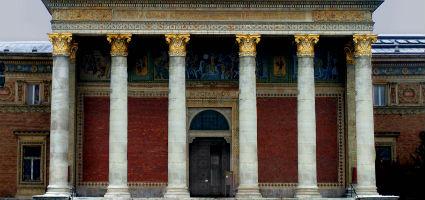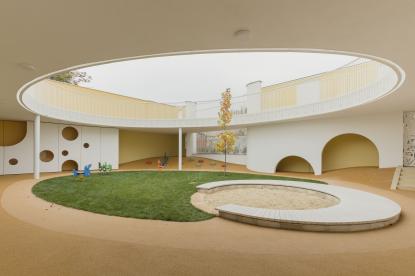2026. January 18. Sunday
Kunsthalle - Budapest
 |
Address: 1146, Budapest Dózsa György út 37.
Phone number: (1) 460-7000, (1) 363-2671
E-mail: info@mucsarnok.hu
Opening hours: Tue-Wed 10-18, Thu 12-20, Fri-Sun 10-18
|
The exhibition has closed for visitors.
Museum tickets, service costs:
|
Ticket for adults
|
1200 HUF
|
|
|
Ticket for adults
(valid for the Kunsthalle and the Ernst Museum)
|
1400 HUF
|
|
|
Group ticket for adults
(from over 10 people)
|
800 HUF
|
/ capita
|
|
Ticket for students
(EU citizens from the age of 6 to 26 )
|
600 HUF
|
|
|
Ticket for students
(valid for the Kunsthalle and the Ernst Museum, 6-26 years of age)
|
700 HUF
|
|
|
Group ticket for students
(from over 10 people)
|
400 HUF
|
/ capita
|
|
Ticket for pensioners
(valid for the Kunsthalle and the Ernst Museum, 62-70 years of age)
|
700 HUF
|
|
|
Ticket for pensioners
(EU citizens from the age of 62 to 70)
|
600 HUF
|
|
|
Ticket for families
(1 adults + 2 children)
|
1800 HUF
|
/ family
|
|
Ticket for families
(2 adults + 2 children)
|
2400 HUF
|
/ family
|
The various artistic disciplines will have the opportunity to present themselves at the Műcsarnok in five-year cycles, attracting considerable professional and public interest. In 2024, it is again architecture that is in the spotlight. The 3rd National Salon of Architecture, titled Local Value, invites visitors to think together. In the exhibition with the sigma sign as its logo, which summarises Hungarian architecture of the last five years both within and beyond the borders, visitors can explore various architectural ideas grouped around inescapable issues related to the most important challenges of our time. In the outlines of the present, in addition to the sign-buildings of urbanistic scale, the relationship between architecture and community/cultural identity is examined from several angles, not overlooking the small-scale but all the more important interventions with catalytic power.

The architecture of educational institutions and residential buildings, which can be regarded as keys to the future and indicators of the zeitgeist, constitutes an autonomous section. The section on the situation of the built heritage explores the possibilities of living with the past from the perspective of identity and the inheritable community memory. At the very end of the exhibition space, there is a symbolic representation of architectural thinking as a creative process: a selection of sketches, drawings, and visual designs, which, as artistic illustrations, also present architectural visions submitted to the most important national and international competitions. The community space created in the apse is a place of dialogue and professional public life, with the domestic architectural literature of the period in question, spanning half a decade, as a background setting. Artistic building photographs reveal a new face of the buildings using unique storytelling tools, providing insight into the human stories behind the material, into the human dimensions of architecture, and highlighting how the ‘local value’ of a building is confirmed by the community that uses it on a daily basis. It is this responsibility to the community that represents the architect’s main task, especially in the context dominated by the recent pandemic, by war and by climate change.

The architecture of educational institutions and residential buildings, which can be regarded as keys to the future and indicators of the zeitgeist, constitutes an autonomous section. The section on the situation of the built heritage explores the possibilities of living with the past from the perspective of identity and the inheritable community memory. At the very end of the exhibition space, there is a symbolic representation of architectural thinking as a creative process: a selection of sketches, drawings, and visual designs, which, as artistic illustrations, also present architectural visions submitted to the most important national and international competitions. The community space created in the apse is a place of dialogue and professional public life, with the domestic architectural literature of the period in question, spanning half a decade, as a background setting. Artistic building photographs reveal a new face of the buildings using unique storytelling tools, providing insight into the human stories behind the material, into the human dimensions of architecture, and highlighting how the ‘local value’ of a building is confirmed by the community that uses it on a daily basis. It is this responsibility to the community that represents the architect’s main task, especially in the context dominated by the recent pandemic, by war and by climate change.


